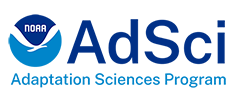Development of an online climate and fisheries data dashboard for stakeholders in the Northeast Shelf Large Marine Ecosystem






Advancing scientific understanding of climate, improving society’s ability to plan and respond






Advancing scientific understanding of climate, improving society’s ability to plan and respond

